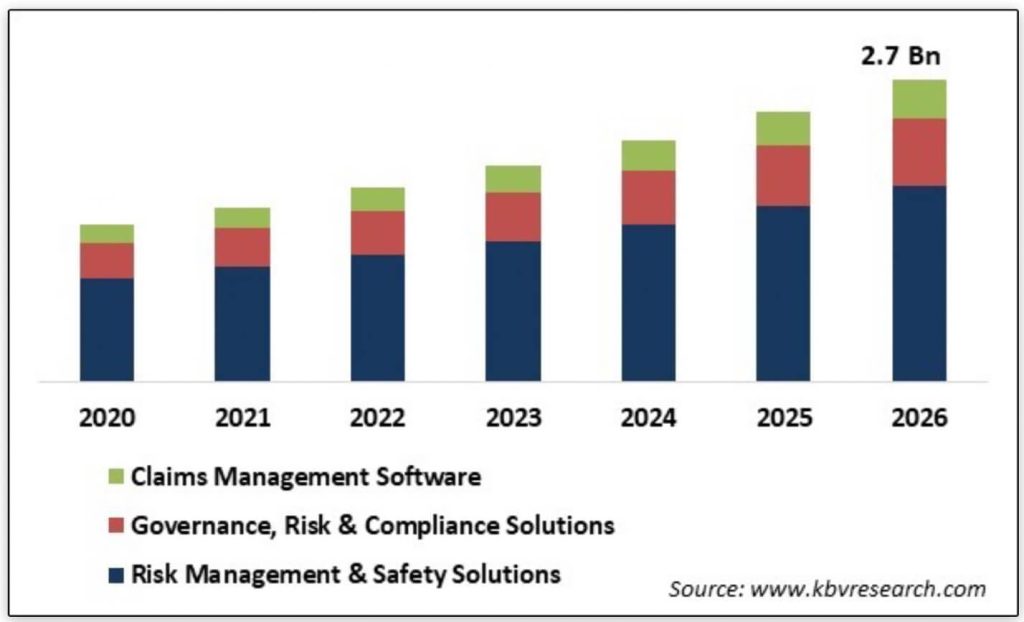As regulatory pressures increase, risk management and compliance in healthcare grows ever more complex. Maintaining efficient and effective processes, however, is challenging – particularly at a time when patient volumes are increasing, and the persistent threat of fines and lawsuits continues to loom large. Throw in concerns about data security, patient privacy and conflicts of interest and it’s clear that the healthcare compliance landscape has never been more complicated and fraught.
To rise to these challenges, healthcare organisations need a robust healthcare compliance programme in place – one that can automate key tasks and define and distribute policies and procedures that meet the pressing regulatory demands of today. In short, they need healthcare compliance software to help their compliance officers manage the entire function effectively.
What is healthcare compliance software?
A UK study reports that 3.6% of hospital deaths are the result of preventable medical error. This includes process errors, planning errors and failures to act. To effectively address such adverse events, compliance and risk managers need appropriate tools to monitor compliance across the whole organisation.
The healthcare industry covers a wide range of facilities – from hospitals to home health and social care providers, long-term care facilities, laboratories, pharmaceutical firms and children’s health centres. What unites them all, however, is the common need to take a comprehensive, organised approach to compliance in order to successfully navigate the ever-changing landscape of healthcare regulations.
Healthcare compliance software ensures healthcare organisations can adhere to strict regulatory guidelines and revise compliance practices based on changing regulations. The software is used to continuously track, monitor and audit operational processes to ensure they are aligned with legal requirements and organisational policies.
Through workflow and process automation features, healthcare compliance software helps practices, hospitals and other healthcare organisations save costs and improve efficiency by automating routine tasks, minimising the resources needed to maintain compliance, and improving awareness of compliance.
Additionally, healthcare compliance software facilitates the successful deployment and maintenance of a compliance programme, keeps the organisation up to date with industry regulations, and enables the identification of risk.
The best healthcare compliance software solutions provide the following functionality:
- Risk management – to identify and classify various operational functions with a specific risk level
- Policy management – to provide a centralised location to store and access policy documents and portfolios
- Audit trail – to simplify and organise the workflow of audits with review and approval features
- Compliance calendar – to track progress, set up alerts and notifications, and assign tasks to other users from a centralised location
- Compliance workflows – to assign specific tasks to specific individuals and track real-time progress
- Compliance alerts – to send real-time notifications whenever a task is completed, delayed, or failed
Healthcare compliance software should be able to perform the following tasks:
- Monitor, track and update any changes to industry and/or governmental regulation and practice
- Facilitate the designation of compliance officers and committees
- Develop compliance-specific policies and procedures, including standards of conduct
- Enable open lines of communication
- Support appropriate and relevant compliance training and education
- Set up, track and respond to detected compliance offences
- Support or offer internal monitoring, auditing and measuring efforts
With all these beneficial features, it’s no wonder the healthcare compliance software market is growing.
The latest figures from KBV Research reveal that the market is expected to reach $2.7 billion by 2026, growing at a CAGR of 11.6% during the forecast period.

(Image source: kbvresearch.com)
According to the report: “The increasing essential to limit healthcare costs, growing occurrences of medical errors and hospital-acquired infections, and rising government enterprises to increase patient safety and patient consequences are the main drivers of the market.”
Automating risk management and compliance in healthcare
Spreadsheets and manual processes are too slow and susceptible to human error to be fit for modern healthcare compliance purposes. By contrast, a modern-day compliance solution improves efficiencies, reduces the risk of error, and eliminates many manual and time-consuming tasks in the following ways.
Compliance monitoring
Healthcare compliance software enables your compliance officers to monitor precisely which members of staff have read and accepted which regulations and policies. Monitoring is automated with sophisticated tools which provide full change, approval, and acceptance history for each policy. Real-time reporting tools allow compliance managers to carry out compliance audits quickly and easily.
Raising compliance awareness
One of the core responsibilities of compliance officers is to promote awareness of compliance throughout the organisation. Compliance software supports this initiative with in-built content management systems that group together all compliance-related content, such as FAQs, checklists, documents and policies in one easy-to-access place on the organisation’s intranet.
Internal audits
Compliance software comes with a whole suite of tools to schedule, run and manage internal audits via a simple workflow. A good solution will have a calendar and permission system for scheduling audits, specifying the relevant legislation, and assigning the audit team. During audits, the most important category of observations for compliance are non-compliances, which should be easily recordable in the system. Each non-compliance can be marked with corrective actions clearly assigned to a recipient, and a workflow automatically created to include verification from the audit team that the appropriate corrective action has been taken.
Final thoughts – automating compliance via the company intranet
Today, the best intranet solutions come with in-built compliance management software, helping healthcare organisations manage risk assessments and compliance efficiently and effectively. The ideal solution will enable you to create customised compliance procedures from an intuitive dashboard. Once a compliance object is created, you can then inform all relevant users of a compliance requirement via email, and then monitor and manage the progress of each compliance procedure – all from one digital workplace system that everyone can use – and call home.






